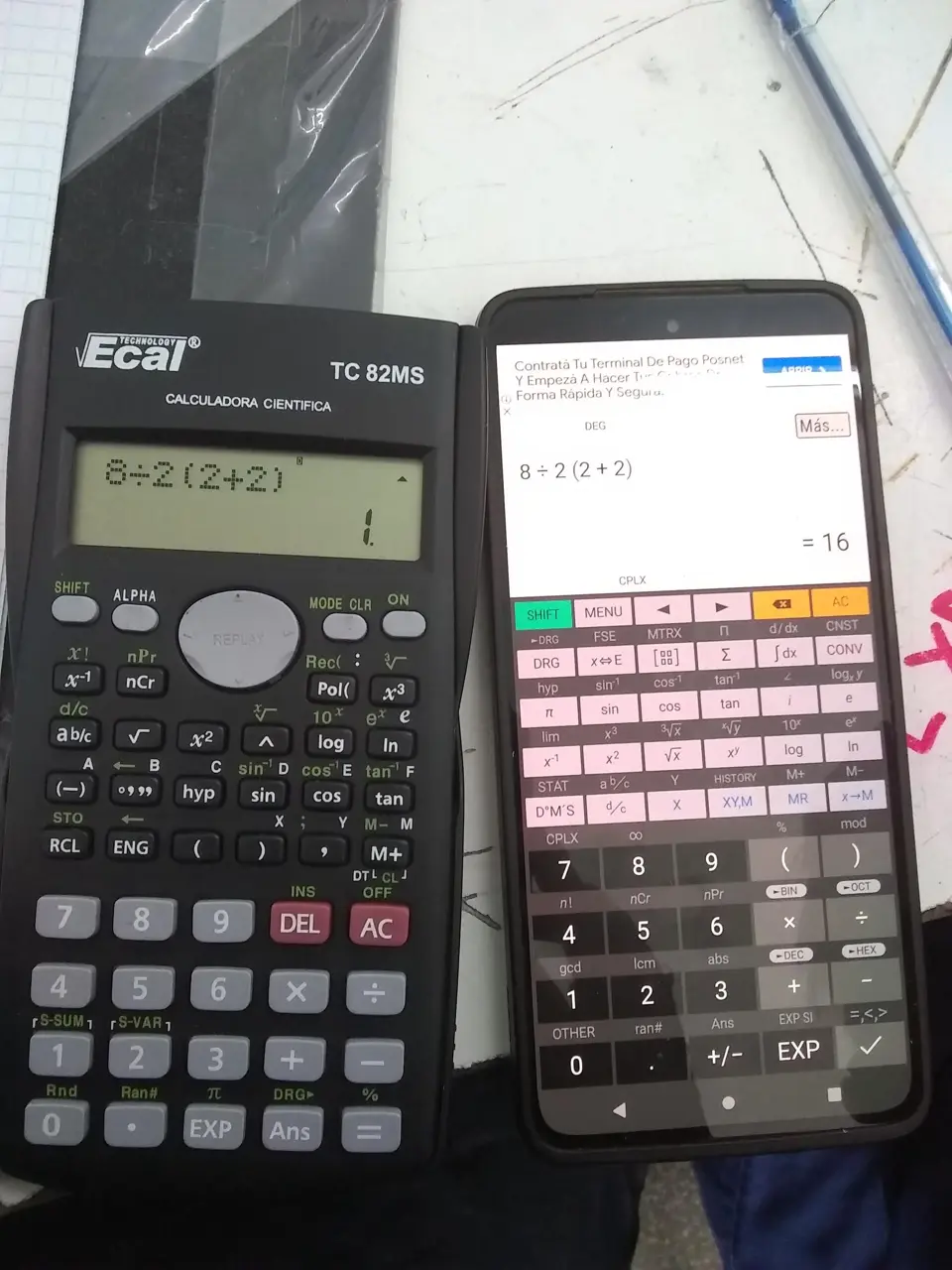this post was submitted on 03 Dec 2023
3 points (100.0% liked)
196
16601 readers
1657 users here now
Be sure to follow the rule before you head out.
Rule: You must post before you leave.
founded 1 year ago
MODERATORS
you are viewing a single comment's thread
view the rest of the comments
view the rest of the comments

For anyone like me who has math as their worst subject: PEMDAS.
So we gotta do it in the proper order. And remember, if the number is written like
2(3)then its multiplication, as if it was written2 x 3or2 * 3.So we read
8/2(2+2)and need to do the following;(2 + 2)and follow the order of operations within them, which gets us 4.2(4)which is the same as2 x 4which is88 / 8is1.The answer is 1. The old calculator is correct, the phone app which has ads backed into it for a thing that all computers were invented to do is inaccurate.
Well that's just wrong... Multiplication and division have equal priorities so they are done from left to right. So: 8 / 2 * (2 + 2)=8 / 2 * 4=4 * 4=16
Not quite, pemdas can go either from the left or right (as long as you are consistent) and division is the same priority as multiplication because dividing by something is equal to multiplying by the inverse of that thing... same as subtraction being just addition but you flip the sign.
8×1/2=8/2 1-1=1+(-1)
The result is 16 if you rewrite the problem with this in mind: 8÷2(2+2)=8×(1/2)×(2+2)
No, that's wrong. 2(2+2) is a single term, and thus entirely in the denominator. When you separated the coefficient you flipped the (2+2) into the numerator, hence the wrong answer. You must never add multiplication signs where there are none.